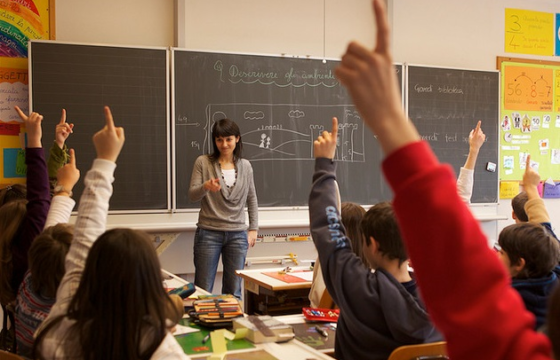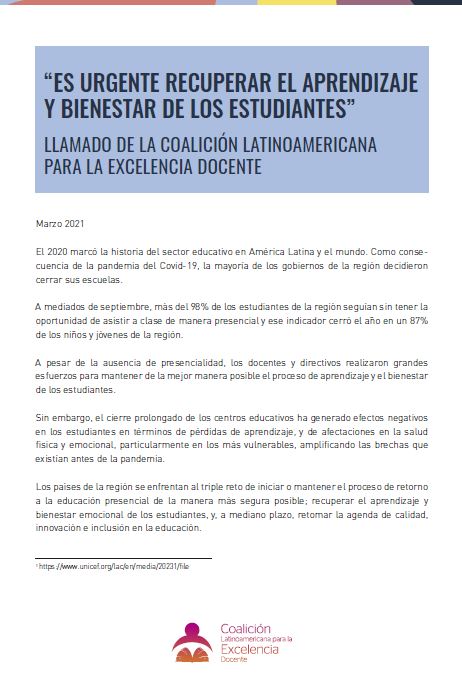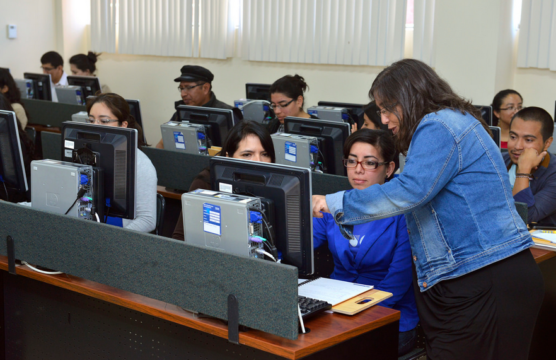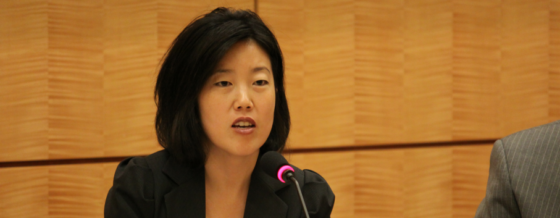
Producing High-Quality Teachers
Teaching is crucial to high-quality education, yet there is little agreement on how to produce high-quality teachers
This post is also available in: Español
The attached document is only available in Spanish.
2020 marked the history of the education sector in Latin America and the world. As a consequence of the Covid-19 pandemic, the majority of governments in the region decided to close schools. Halfway through September, more than 98% of the students in the region were still without the opportunity to attend classes in person. At the end of the year, that indicator was 87% of children and youth in the region. Despite the lack of in-person classes, teachers and school directors made great efforts to support—to the greatest extent possible—students’ learning process and wellbeing. Nevertheless, prolonged school closures have produced negative effects for students in terms of learning losses and the impact on their physical and emotional health, particularly for the most vulnerable, amplifying the gaps that existed before the pandemic.
The countries in the region are facing a triple challenge:
At the same time, the reopening process presents new opportunities for education systems to reaffirm their commitment to teachers and directors, recognize the fundamental role that teachers play, and ensure a professional work environment under safe and healthy conditions. Today, more than ever, it is necessary to join forces to develop and consolidate an excellent teaching corps that can drive a full-scale educational transformation and overcome the old normal.
The members of the Latin America Coalition for Teaching Excellence, in keeping with their mission to promote teacher professionalization in Latin America, present a document with guidance to support teachers during schools reopening.
Teacher appreciation: Highlight and recognize the efforts that teachers have made during the pandemic to adapt to changes, prepare themselves, and support the learning process of students remotely. This recognition should occur not only at the individual level but also, and especially, at the school level, in order to highlight the collective and collaborative work between teachers.
Digital skills and teacher professional development: Develop and strengthen in-service professional development programs for teachers that contribute to strengthening their digital, technological, and pedagogical competencies for distance education. During the period of reopening when schools are returning to in-person education, in many cases the process of hybrid or combined education will continue. Therefore, strengthening the digital and pedagogical competencies of teachers will have to be included in the development of hybrid or complementary modes.
Teacher socioemotional wellbeing: Develop a diagnostic instrument to measure teachers' socioemotional wellbeing, or apply instruments that already exist, and, based on the information collected, identify the priority risks and needs, and create strategies for socioemotional support. It is necessary to ensure appropriate work conditions for in-person and virtual settings, and develop labor agreements for work-at-home as has been done for other occupations.
Prepare for reopening: Prepare schools so that the education community can return in a secure manner. This includes ensuring minimum sanitary conditions and the recommended social distancing protocols. Additionally, working conditions should be guaranteed that permit teachers to return to in-person work in the safest manner possible. We believe that, when countries begin their vaccination processes, teacher should be considered a priority group.
Evaluation and recovery of learning: When schools open, teachers should be prepared to evaluate the learning and emotional wellbeing needs of students and design strategies to address them. In contexts where reopening is impossible, it is necessary to guarantee mechanisms to evaluate learning and determine student needs after a year of school closures. It will be essential to offer tools to teachers to diagnose students in a flexible manner in terms of learning and wellbeing, and adjust teaching and learning processes accordingly.
A shared societal responsibility: Education leaders, authorities, parents, civil society, academics, and teacher unions should keep in mind during the process of returning to in-person learning that there needs to be a much greater degree of solidarity and agreement with all of those involved in the provision of education services. This requires an understanding, with schools reopening, that this cannot be treated as a business-as-usual situation, but instead, given the extreme complexity of managing this process and the severe economic impact that it has had on public finances across the entire region, it will be necessary to think, design, and build alternative and innovative strategies.
Teaching is crucial to high-quality education, yet there is little agreement on how to produce high-quality teachers
Preparing students for the 21st century requires the use of ICTs and technology in schools
How impact evaluation systems might help improve teacher policy in Latin America.


